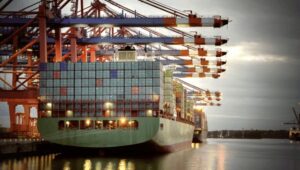For businesses and individuals alike, navigating the world of international shipping can feel like traversing a labyrinth. When it comes to getting your goods from China to Brazil, deciphering shipping costs is a crucial step. This comprehensive guide will equip you with the knowledge to conquer this challenge.
Understanding Shipping Costs: A Breakdown of Key Factors

The final cost of shipping your goods from China to Brazil is influenced by a multitude of factors. Here’s a breakdown of the key players:
- Package Dimensions and Weight: Shipping costs are heavily dependent on the size and weight of your shipment. This is often calculated using dimensional weight, which considers both the actual weight and the package’s volumetric weight.
- Shipping Method: Different shipping methods (air freight, sea freight, express courier) have varying costs associated with speed and service.
- Origin and Destination: The distance between origin (China) and destination (Brazil) significantly impacts shipping costs.
- Fuel Surcharges: Fuel prices can fluctuate, and shipping companies may apply fuel surcharges to cover these fluctuations.
- Customs Duties and Taxes: Depending on the type and value of your goods, you may encounter import duties and taxes levied by Brazilian customs.
Unveiling the Options: Different Shipping Methods and Their Costs

The choice of shipping method from China to Brazil hinges on your priorities for speed and budget. Let’s delve into the most common options:
- Air Freight: The fastest option, air freight offers swift delivery times (typically 5-10 days) but comes at a premium cost. Prices can range from $3.70 to $6.95 per kilogram, with discounts available for larger shipments.
- Sea Freight: The most cost-effective option for large shipments, sea freight offers slower transit times (25-40 days). Costs for a Full Container Load (FCL) of a 20-foot container typically range from $1,500 to $3,000, while a 40-foot container can cost between $2,800 to $5,500. However, for smaller shipments (Less Than Container Load – LCL), costs can start as low as $200 per cubic meter.
- Express Couriers: Express couriers like DHL, FedEx, and UPS offer a balance between speed and cost. Delivery times are generally faster than sea freight (3-7 days) but slower than air freight. Costs tend to be higher than air freight, ranging from $6 to $10 per kilogram.
Navigating the Bureaucracy: Customs Duties, Taxes, and Additional Fees

Importing goods from China into Brazil often involves customs duties and taxes levied by the Brazilian government. The specific rates depend on the type and value of your goods. Here are some additional fees you might encounter:
- Terminal Handling Charges (THCs): Fees charged by ports for loading and unloading containers.
- Inland Transportation: Costs associated with transporting your goods within Brazil after they arrive at the port.
- Documentation Fees: Costs associated with preparing and processing necessary customs documentation.
Pro Tip: Utilize tools provided by Brazilian customs or freight forwarders to estimate potential duties and taxes before finalizing your shipment.
Optimizing Your Budget: Tips for Reducing Shipping Costs from China to Brazil
Here are some strategies to keep your shipping costs from China to Brazil under control:
- Consolidate Shipments: If you have multiple smaller shipments, consider consolidating them into a single larger shipment to benefit from economies of scale and potentially lower per-unit costs.
- Negotiate with Suppliers: Negotiate incoterms (terms of sale) with your Chinese supplier. Incoterms like “FOB China” shift responsibility and cost of international shipping to you, while “CIF Brazil” places the burden on the supplier.
- Shop Around for Freight Forwarders: Compare quotes from several reputable freight forwarders to find the best combination of price and service.
- Utilize Free Trade Agreements (FTAs): If your goods qualify under any existing free trade agreements between China and Brazil, you may be exempt from certain import duties. Research applicable FTAs to see if they can benefit your shipment.
Choosing the Right Partner: Selecting the Best Shipping Provider

Selecting the ideal shipping provider for your China-to-Brazil journey is crucial. Consider these factors:
- Experience: Choose a provider with a proven track record of handling shipments between China and Brazil.
- Services Offered: Ensure the provider offers the specific services you require (customs clearance, inland transportation, etc.).
- Cost Transparency: Opt for a provider that provides clear and upfront pricing structures with minimal hidden fees.
- Communication and Customer Service: Choose a provider with a strong reputation for clear communication and responsive customer service, ensuring you’re kept informed throughout the shipping process.
Tracking Your Shipment with Confidence: Tracking and Insurance Options
Peace of mind is paramount when shipping internationally. Most reputable shipping providers offer robust online tracking tools that allow you to monitor your shipment’s progress in real-time, from origin in China to final delivery in Brazil. Additionally, consider purchasing cargo insurance to protect your goods against potential damage or loss during transit.
Common Challenges and Overcoming Them: Anticipate and Conquer
Even with careful planning, hiccups can arise during international shipping. Here are some common challenges and how to navigate them:
- Customs Delays: Customs clearance processes can sometimes lead to delays. Ensure all necessary documentation is accurate and complete to minimize the risk of delays.
- Port Congestion: Congestion at ports can cause delays. Working with a reliable freight forwarder with experience navigating busy ports can help mitigate this issue.
- Unexpected Costs: Hidden fees or unforeseen circumstances can lead to additional costs. Choose a transparent shipping provider and factor in potential buffer costs when budgeting.
By understanding these challenges and employing proactive strategies, you can be well-equipped to overcome them and ensure a smooth delivery of your goods from China to Brazil.




